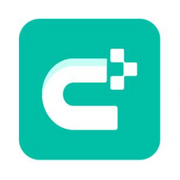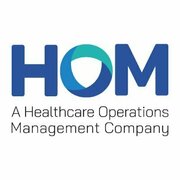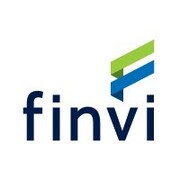
Best Revenue Cycle Management (RCM) Software 2026
What is Revenue Cycle Management (RCM)? Revenue Cycle Management (RCM) software is a tool for organizations in various industries, especially in the healthcare and medical billing sector. RCM software helps businesses manage and streamline their financial processes, such as patient registration, claims management, medical coding, billing, and collections. It is primarily used by departments such as finance, billing, accounting, and revenue cycle management teams within an organization. The ...
We’ve collected videos, features, and capabilities below. Take me there.
All Products
Learn More about Revenue Cycle Management (RCM) Software
What is Revenue Cycle Management (RCM)?
Revenue Cycle Management (RCM) software is a tool for organizations in various industries, especially in the healthcare and medical billing sector. RCM software helps businesses manage and streamline their financial processes, such as patient registration, claims management, medical coding, billing, and collections. It is primarily used by departments such as finance, billing, accounting, and revenue cycle management teams within an organization.
The primary goal of RCM software is to optimize financial performance, ensuring a smooth revenue flow and operational efficiency. By using RCM software, organizations can reduce manual errors, enhance productivity, increase cash flow, and ensure compliance with regulations and billing practices.
RCM software is closely related to and sometimes overlaps with other software categories such as Medical Billing Software, Practice Management Software, and Medical Office EMR & EHR Software. While medical billing software focuses primarily on billing and claims management, RCM software covers a broader range of financial processes, including patient registration, eligibility verification, and collections. Practice management software typically includes RCM features but also incorporates appointment scheduling, patient communication, and other administrative functions.
Features of Revenue Cycle Management (RCM) Software
Patient Registration: Capture and store patient demographic and insurance information.
Eligibility Verification: Check a patient's insurance coverage and confirm eligibility.
Claims Management: Create, submit, and track insurance claims to ensure timely reimbursement.
Medical Coding: Assign appropriate codes to medical procedures and diagnoses for accurate billing.
Billing and Invoicing: Generate and manage patient bills and invoices.
Payment Processing: Process payments from various sources, such as insurance companies, patients, and third-party payers.
Denial Management: Identify and handle claim denials, resubmissions, and appeals.
Collections: Track and manage outstanding balances, send reminders, and handle collections processes.
Reporting and Analytics: Generate reports and analyze financial data to gain insights into revenue patterns, performance, and areas for improvement.
Compliance and Audit: Ensure compliance with industry regulations, billing standards, and privacy requirements.
Integration: Seamlessly integrate with other systems such as EHRs, practice management software, and accounting software for data exchange and workflow efficiency.
Revenue Cycle Management Software (RCM) Comparisons
- On-site vs. Cloud Deployment: On-site software is often pricier and can require additional hardware. Cloud-based medical billing software allows users to access cloud data from any location. Consider if your organization would benefit from a more flexible cloud-based software or if a more secure local option is more suitable.
- Security: Healthcare organizations often require enhanced security regarding confidentiality regarding patients’ medical information to remain in compliance with HIPAA privacy laws.
- Specialization Features: Revenue Cycle Management (RCM) Software tailors their offerings to specific specialties, like family medicine or home care, that vary in their most important features. Non-specialized Revenue Cycle Management (RCM) software may be more customizable to the needs of your practice.
Revenue Cycle Management (RCM) Pricing Information
Pricing for RCM software can vary widely depending on factors such as the size of the organization, the number of users, and the features included. Most vendors do not publicly display pricing and instead provide custom quotes based on specific requirements. However, it is common for vendors to offer free demos or trials to potential buyers, allowing them to evaluate the software before making a purchase decision.
As a general guideline, buyers can expect pricing ranges from a few hundred dollars per month for small practices to thousands of dollars per month for larger healthcare organizations with more extensive needs. Higher-priced plans often include advanced features, such as analytics and reporting capabilities, integration options, and dedicated customer support. Some vendors may offer a suite-style platform that includes RCM software as part of a comprehensive practice management or EHR solution, which may have different pricing structures.























